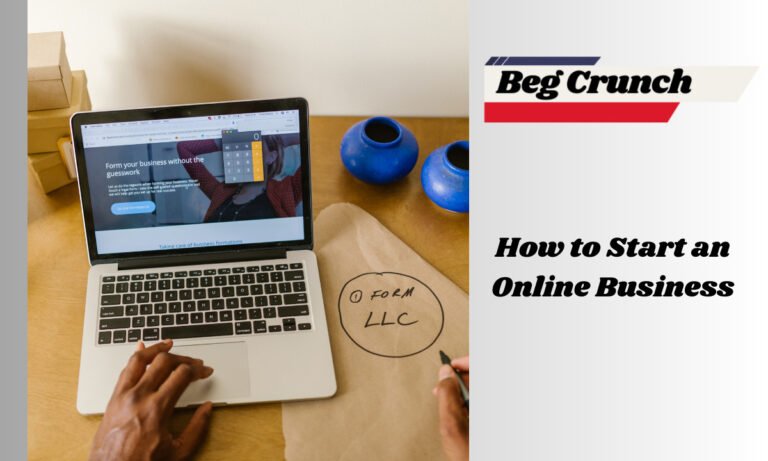How to Start a Small Business: Startup Guide
Small company startups may be a pleasant and enjoyable experience. It allows you to turn your passion into a venture, be your boss, and contribute to the local economy. However, launching a successful small business requires careful planning and execution. In this comprehensive guide, we will walk you through the essential steps to start your own small business. From refining your business idea to marketing and managing your enterprise, we’ve got you covered.
1. Refining Your Business Idea
The first step in starting a small business is to develop a clear and viable business idea. Here are some tips to refine your business concept:
Identify Your Passion: Consider what you are passionate about and what you excel at. Starting a business based on your interests can provide the motivation needed to overcome challenges.
Market research: Perform in-depth market research to comprehend your target market and rivals. Find market voids that your company can fill.
Unique Value Proposition: Determine what sets your business apart from competitors. Your unique value proposition should highlight the benefits your products or services offer to customers.
2. Creating a Business Plan
For your small business to be successful, you must have a solid business strategy. It serves as a roadmap and helps you navigate the challenges ahead. The essential elements of a business strategy are as follows:
Executive Summary: Provide an overview of your business, its mission, and the goals you aim to achieve.
Business Description: Describe your business in detail, including the products or services you will offer.
Analyse your target market, your rivals, and market trends.
Marketing and Sales Strategies: Outline your marketing and sales tactics to reach potential customers.
Financial Projections: Include financial forecasts, such as sales projections, expense estimates, and cash flow analysis.
3. Registering Your Business
The next step is to register your small business and ensure its legal compliance. Follow these steps:
Choose a Business Name: Select a unique and catchy name for your business that aligns with your brand.
Choose your firm’s legal structure, such as a partnership, limited liability corporation (LLC), or a single proprietorship.
Register Your Business: File a registration form for your company with the relevant municipal, state, and federal agencies.
Obtain Licenses and Permits: Check for any licenses or permits required to operate your type of business.
4. Securing Financing
Funding your small business may involve using your savings, seeking loans, or attracting investors. Consider the following financing options:
Bootstrapping: Use personal savings or contributions from friends and family to fund the initial stages of your business.
Small Business Loans: Apply for small business loans from banks or credit unions. Ensure you have a solid business plan to increase your chances of approval.
Grants and Subsidies: Research grants and subsidies available for small businesses from government agencies or non-profit organizations.
Angel Investors or Venture Capitalists: Pitch your business idea to potential angel investors or venture capitalists who may be interested in funding your venture.
5. Setting Up Your Business Location
Decide on the physical location of your small business, if applicable. Consider these factors:
Home Office: If your business can be operated from home, it can save you costs and offer flexibility.
Commercial Space: If you need a physical storefront or office, choose a location that is easily accessible to your target customers.
Equipment and Supplies: Purchase the necessary equipment and supplies to run your business efficiently.
6. Building Your Team
As your business grows, you may need to hire employees to help you run the operations. Consider these steps for building your team:
Job Descriptions: Clearly define roles and responsibilities for each position in your small business.
Recruitment and Hiring: Attract potential candidates through job postings, networking, or recruitment agencies.
Interviewing Process: Conduct interviews to assess candidates’ qualifications and cultural fit with your business.
Employee Training: Provide training and support to new employees to help them integrate into your business.
7. Marketing and Promoting Your Small Business
Effectively marketing your small business is crucial for attracting customers and generating sales. Consider the following marketing strategies:
Online Presence: Build a professional website and create profiles on social media platforms. Use these channels to engage with your target audience and showcase your products or services.
Content Marketing: Create valuable content, such as blog posts, videos, or infographics, to establish yourself as an industry expert and attract potential customers.
Local Advertising: Advertise in local newspapers, radio stations, or community events to reach a local audience.
Networking: Attend industry events, trade shows, and networking gatherings to build connections and partnerships.
FAQs
Does starting a small business require a business degree?
No, a business degree is not a requirement to start a small business. While business knowledge can be beneficial, many successful entrepreneurs have built thriving businesses without formal education in the field.
How long does it take to start a small business?
The time it takes to start a small business varies depending on factors such as the complexity of the business idea, legal requirements, and funding availability. It might last from a few weeks to several months.
Can I start a small business while working a full-time job?
Yes, it is possible to start a small business while working a full-time job. However, to properly combine these tasks, careful time management and commitment are needed.
What are some typical issues that small company entrepreneurs deal with?
Small business owners often face challenges such as limited resources, competition, cash flow management, and marketing their businesses effectively.
Conclusion
Starting a small business is a courageous endeavor that can lead to personal fulfillment and financial independence. By following the steps outlined in this guide, you can lay a strong foundation for your small business and increase your chances of success.
Remember, starting a small business requires determination, adaptability, and a willingness to learn from both successes and failures. Embrace the journey, stay focused on your goals, and be open to seeking help and guidance when needed.







